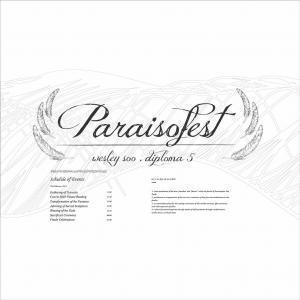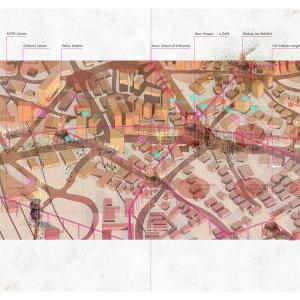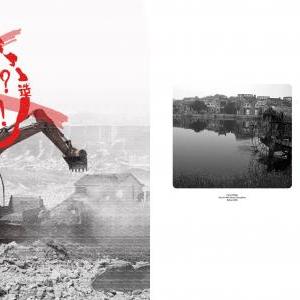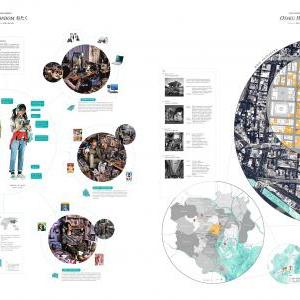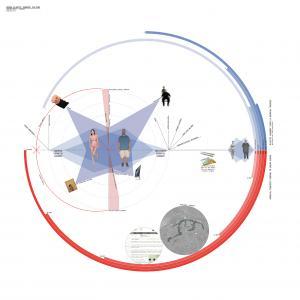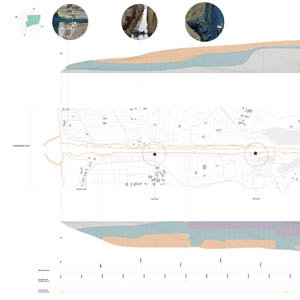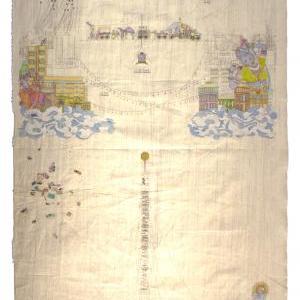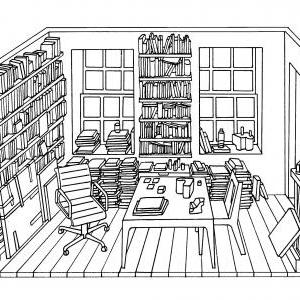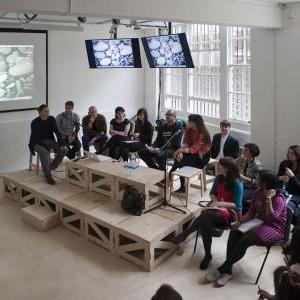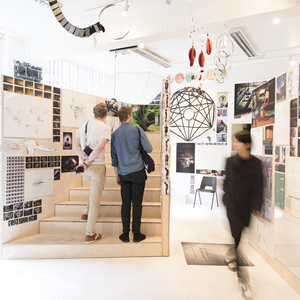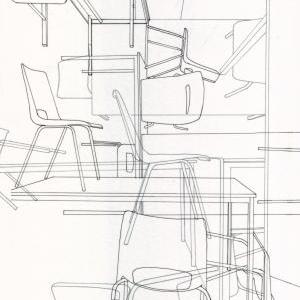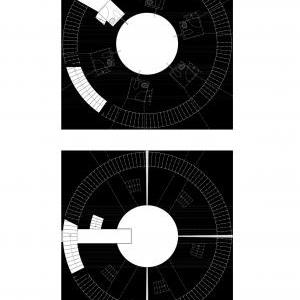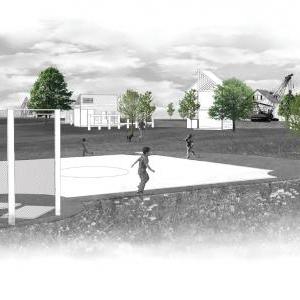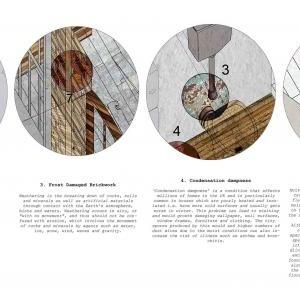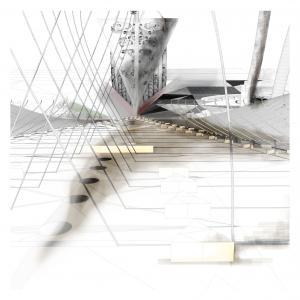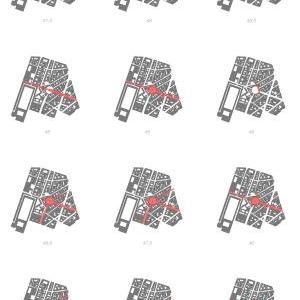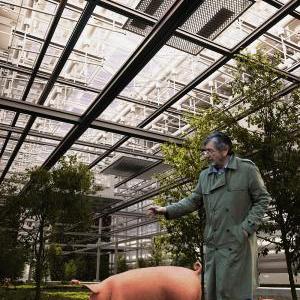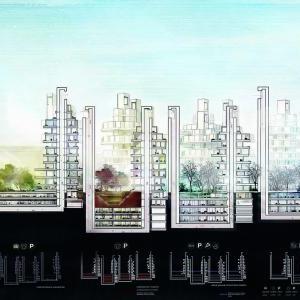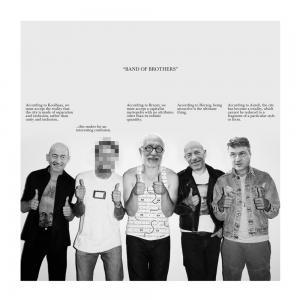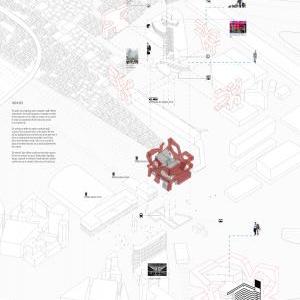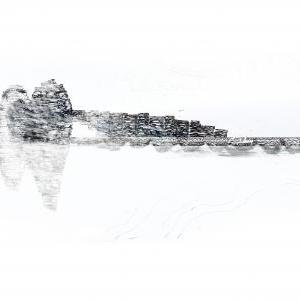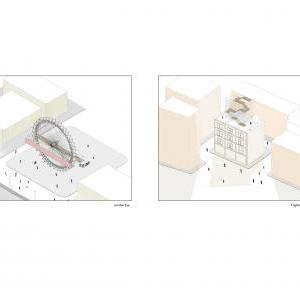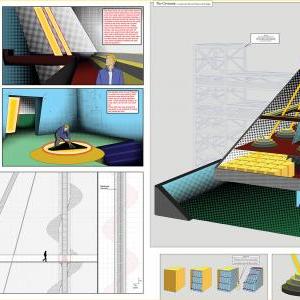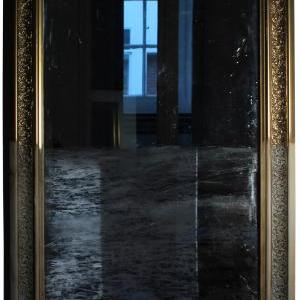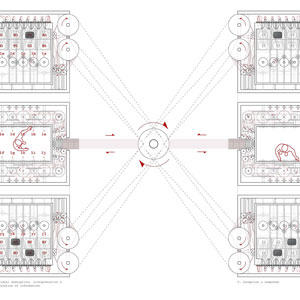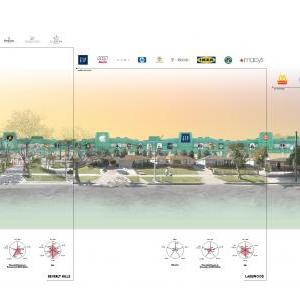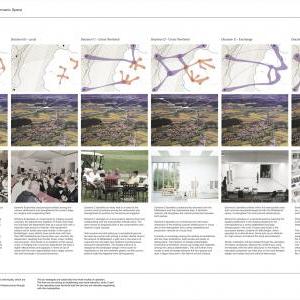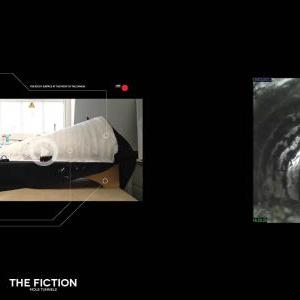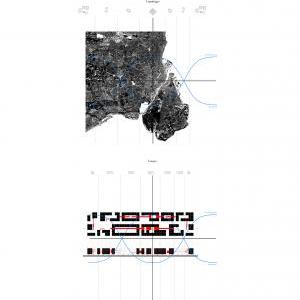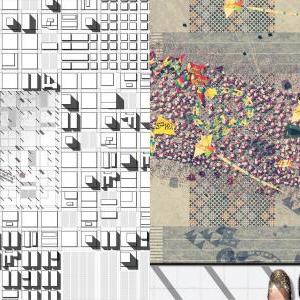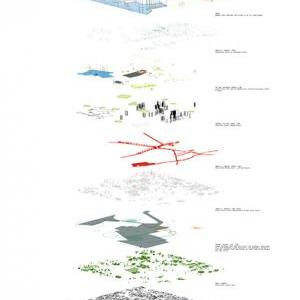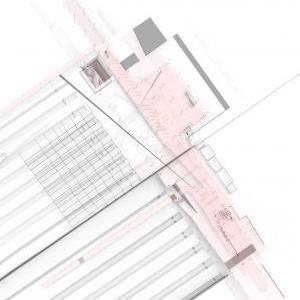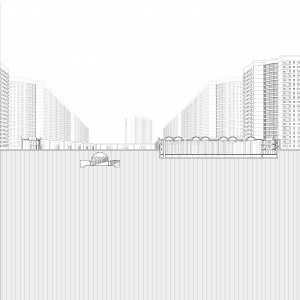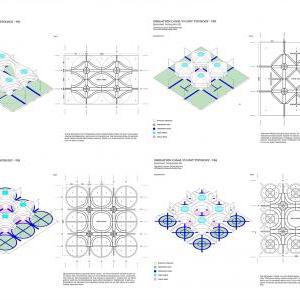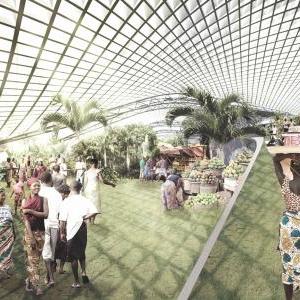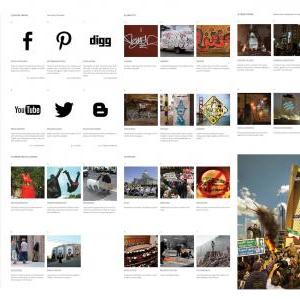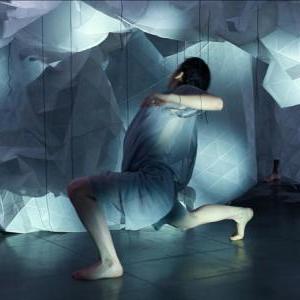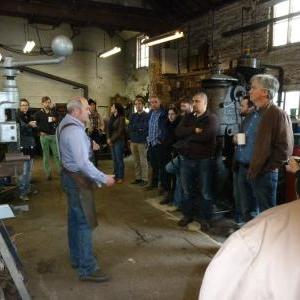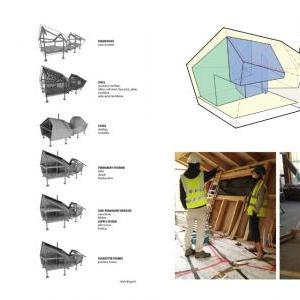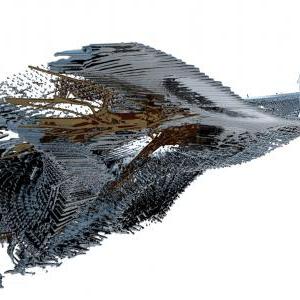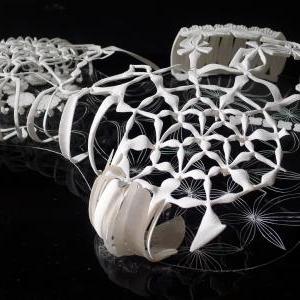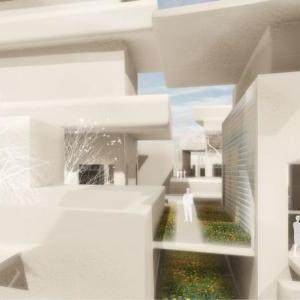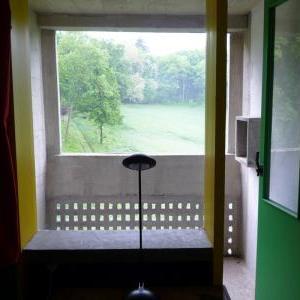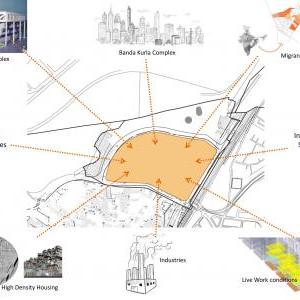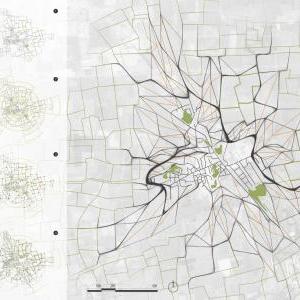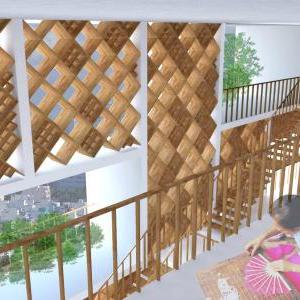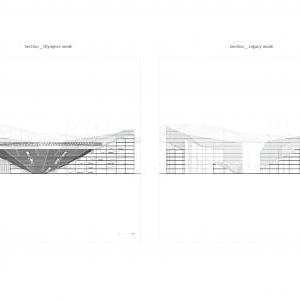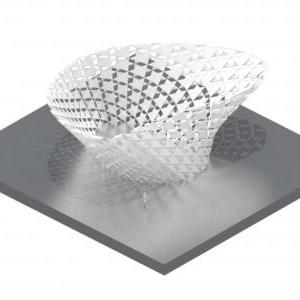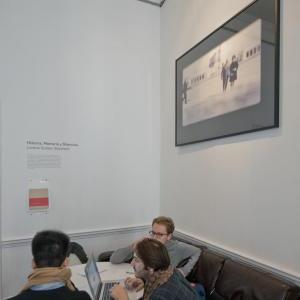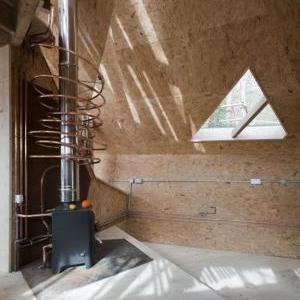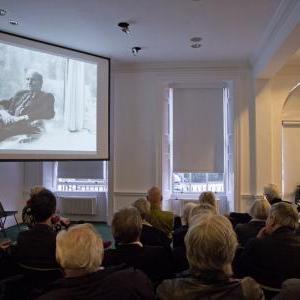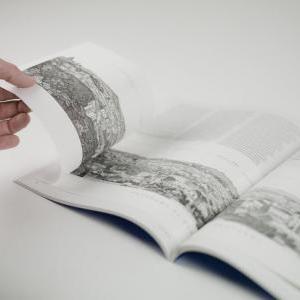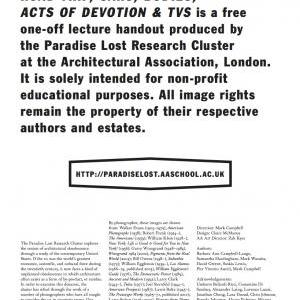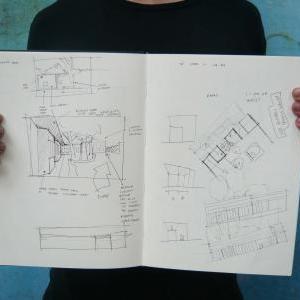In its search of what public space can be, Diploma 5 shifted this year’s focus from the work of social groups and subcultures to people’s actions, thus reincorporating what many contemporary agendas often forget: how individual behaviours and specifically public performances of conflict strengthen a group’s identity and enable the expression of a collective mind. The unit sought an alternative
investigation related to action (as opposed to analysing abstraction and the distancing of functionalism and programming – already major themes related to this area of study) and operated within definitions of contemporary and technologically engaged rituals and their relationship with artificially constructed environments. Through ritualisation, the students looked for alternative ways in which space can be actively and publicly produced. As symbolic or idealised expressions that represent common beliefs and values, rituals are analogous to culturally produced texts that generate collective ideas and experiences. Public by nature, rituals are enactments – materialisations of a particular group ethos, a collective and idealised representation of a social construct.
By defining space as a series of relationships between humans, nonhumans, natural species and technologies, the students worked as engineers of artificial paradises to imagine spaces such as informal negotiations environments for diplomats in Geneva; ritualistic transformations of trash to inscribe meaning in woven structures in Ahmedabad; culture-based reversed mining processes in South Africa; alcohol-induced boxing matches to reunify communities in permanent conflict in the Balkans; polemic and feminine chariots against male political immaturity in Korea’s DMZ; or clouds of hanging masts that accommodate dragon boat races for Guangzhou’s evicted residents. For Diploma 5 these events, festivals and rituals are not frozen narratives but real experiences and practices in constant evolution. Through these projects students defined public space as the place of conflict. As a changing relationship between many, it is comprised of consent and resistance, negotiation and violence, misunderstanding and appropriation. By invoking public dispute, it is a ritualised way of acting and negotiating space, power and authority, self and society.
Unit Staff
Cristina Díaz Moreno
Efrén García Grinda
Tyen Masten
John Ng
Seminars
Vicente Soler, VISOSE
Nerea Calvillo
José Quintanar + Ruohong Wu
Guests
Jonathan Allen
Pier Vittorio Aureli
Shany Barath
Brendon Carlin
Javier Castañón
Oliver Domeisen
Shin Egashira
Maria Shéhérazade Giudici
Evan Greenberg
Kostas Grigoriadis
Eugene Han
Tobias Klein
Sara Klomps
Theo Sarantoglou Lalis
Monia De Marchi
Valle Medina
Inigo Minns
Ricardo de Ostos
John Palmesino
Christopher Pierce
Ben Reynolds
Ann-Sofi Rönnskog
Natasha Sandmeier
Brett Steele
Charles Tashima
Carlos Villanueva Brandt
Mike Weinstock
Andrew Yau
Thanks to
Mike Weinstock
Pei-Yao Wu
In its search of what public space can be, Diploma 5 shifted this year’s focus from the work of social groups and subcultures to people’s actions, thus reincorporating what many contemporary agendas often forget: how individual behaviours and specifically public performances of conflict strengthen a group’s identity and enable the expression of a collective mind. The unit sought an alternative
investigation related to action (as opposed to analysing abstraction and the distancing of functionalism and programming – already major themes related to this area of study) and operated within definitions of contemporary and technologically engaged rituals and their relationship with artificially constructed environments. Through ritualisation, the students looked for alternative ways in which space can be actively and publicly produced. As symbolic or idealised expressions that represent common beliefs and values, rituals are analogous to culturally produced texts that generate collective ideas and experiences. Public by nature, rituals are enactments – materialisations of a particular group ethos, a collective and idealised representation of a social construct.
By defining space as a series of relationships between humans, nonhumans, natural species and technologies, the students worked as engineers of artificial paradises to imagine spaces such as informal negotiations environments for diplomats in Geneva; ritualistic transformations of trash to inscribe meaning in woven structures in Ahmedabad; culture-based reversed mining processes in South Africa; alcohol-induced boxing matches to reunify communities in permanent conflict in the Balkans; polemic and feminine chariots against male political immaturity in Korea’s DMZ; or clouds of hanging masts that accommodate dragon boat races for Guangzhou’s evicted residents. For Diploma 5 these events, festivals and rituals are not frozen narratives but real experiences and practices in constant evolution. Through these projects students defined public space as the place of conflict. As a changing relationship between many, it is comprised of consent and resistance, negotiation and violence, misunderstanding and appropriation. By invoking public dispute, it is a ritualised way of acting and negotiating space, power and authority, self and society.
Unit Staff
Cristina Díaz Moreno
Efrén García Grinda
Tyen Masten
John Ng
Seminars
Vicente Soler, VISOSE
Nerea Calvillo
José Quintanar + Ruohong Wu
Guests
Jonathan Allen
Pier Vittorio Aureli
Shany Barath
Brendon Carlin
Javier Castañón
Oliver Domeisen
Shin Egashira
Maria Shéhérazade Giudici
Evan Greenberg
Kostas Grigoriadis
Eugene Han
Tobias Klein
Sara Klomps
Theo Sarantoglou Lalis
Monia De Marchi
Valle Medina
Inigo Minns
Ricardo de Ostos
John Palmesino
Christopher Pierce
Ben Reynolds
Ann-Sofi Rönnskog
Natasha Sandmeier
Brett Steele
Charles Tashima
Carlos Villanueva Brandt
Mike Weinstock
Andrew Yau
Thanks to
Mike Weinstock
Pei-Yao Wu

